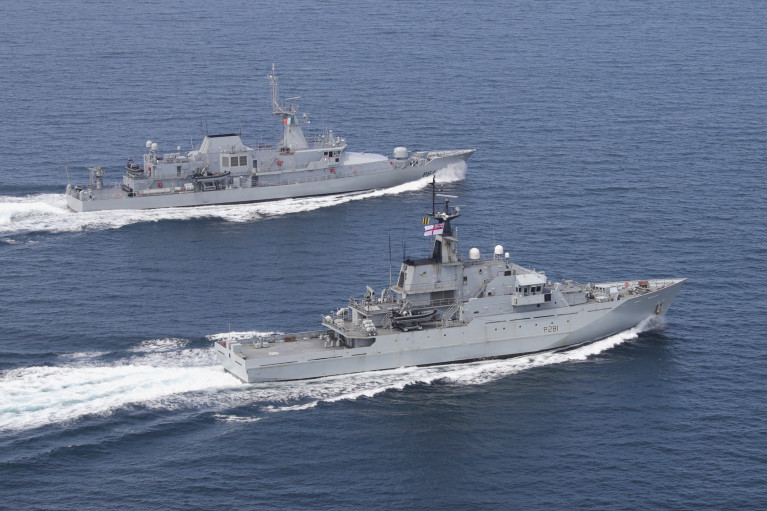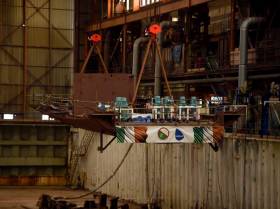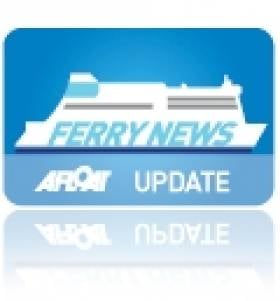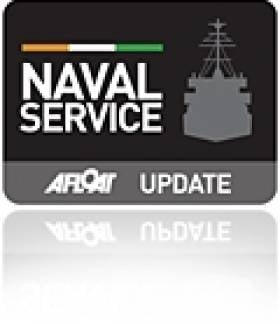Displaying items by tag: Appledore Shipbuilders
According to BusinessLive, a deal in the UK is close to being struck which would see the Appledore shipyard in north Devon reopen, according to union bosses.
GMB, the shipbuilding union, says early indications of a deal to re-open the yard, mothballed for 16 months, would be great news for the community.
Although details are scarce, it is understood a deal in principle has now finally been struck for Appledore Shipyard in north Devon – although it is not yet clear which consortium has been successful.
There will now be a 60-day grace period while final terms are settled.
Ross Murdoch, GMB national officer and CSEU (Confederation of Shipbuilding and Engineering Unions ) national chair, said: “GMB and sister CSEU trade unions have worked round the clock to make sure this famous shipyard was not consigned to the scrapheap.
“But UK shipbuilding is still on the brink. The Tories must stop their ridiculous plan to build the next wave of Royal Navy support ships overseas and let them be built in UK yards instead.”
For more on this shipyard development click here following previous coverage on Afloat.
As mentioned in the photo-caption, the Irish Naval Service's LÉ George Bernard Shaw was the last ship built at the shipyard.
In addition for more on the vessel's Dalkey. Co. Dublin (click here see p.9) connections concerning the playwright.
UK Councillor Calls to Renationalise Appledore Shipyard
DevonLive reports on Appledore Shipyard which according to a UK councillor should be renationalised by the government and fully integrated into the operations of the Ministry of Defence.
Cllr Rob Hannaford, leader of the opposition Labour group on Devon County Council, put forward the notice of motion to last Thursday’s full council meeting.
His motion said that the council was gravely concerned that despite having a highly skilled, dedicated, and innovative local work force, the shipyard remains closed, and that to secure its long term future, ensure that defence capacity and resilience are maintained, and provide employment and prosperity to the local community, and the wider county of Devon, it should be renationalised.
Appledore Shipyard closed on March 15 this year when Babcock’s lease expired, despite a union-led protest march, a 9,500-strong petition and the efforts of local MPs.
Speaking on the motion, Cllr Hannaford, said: “To see a successful shipyard turn profit year-on-year and then struggle to secure work for this committed workforce is very unfair and a sad travesty. It’s a huge concern that this important local shipyard remains closed – especially as we know that it has an incredibly skilled and innovative workforce.
For more click here on the calls to save the north Devon shipyard (campaign) that built its final ship for the Irish Naval Service.
Discounted Ferry Fares across the Shannon
#SHANNON FERRY SERVICE - With the May Bank Holiday looming, those travelling along the mid-western seaboard should note that Shannon Ferries are currently offering discounts of 10% on all 'on-line' tickets booked this month and in June, writes Jehan Ashmore.
The route operated by the Shannon Ferry Group, is the country's longest distance domestic car-ferry service between Killimer-Tarbert and takes 20-minutes to cross the estuary.
In total the short-cut can save 137km by road between the two ferry terminals which link counties Clare and Kerry. Alternatively there is the choice of bridging the Shannon in Limerick City or going underground via the tolled tunnel.
Strategically the route links the popular tourist trail linking the Ring of Kerry, Aran Islands (via the Doolin ferry) and Galway the gateway to Connemara.
The route is served also by the country's largest coastal car-ferries the Shannon Dolphin (1995/500grt) and Shannon Breeze (2000/611grt). They were built by Appledore Shipbuilders in north Devon, which also built the two 'Roisin' class OPV's for the Naval Service over a decade ago.
The 'Breeze' can handle 60 cars and 350 passengers while the slightly smaller 'Dolphin' takes 52 cars and also the same number of passengers to her running mate.
Navy Escort Detained Trawler to Castletownbere
Less then a month ago the Naval Service detained a Northern Irish registered fishing vessel the Lynn Marie seven miles east off Bray Head. Onboard was a crew of 4 UK nationals who were taken into custody to the Gardai after the trawler was escorted by the CPV L.E. Orla to Dun Laoghaire Harbour. To read more about this detention click here.
Ironically the L.E. Orla was a former Royal Naval vessel, HMS Swift (P241) which was deployed on her first assignment to the Hong Kong Patrol Squadron for a four-year period. In 1988 Margaret Thatcher's Conservative Party Government disposed HMS Swift and HMS Swallow (P242) to the Irish Naval Service. The pair were built by Hall Russell Shipyard of Aberdeen as part of an eight 'Peacock' class coastal patrol vessel (CPV).
The 'Peacock' pair were commissioned into the Naval Service and renamed L.E. Orla (P41) and L.E. Ciara (P42) in a ceremony attended by An Taoiseach Charles J. Haughey at the Naval Base in Haulbowline, Cork Harbour.
This weeks' detention is the second conducted by the Naval Service in 2011. Last year the Naval Service carried out 1,666 vessel boardings which resulted in 70 warnings and eight detentions.
- Irish Naval Service
- Cork Harbour
- Northern Ireland
- Haulbowline
- castletownbere
- naval service
- LE Niamh
- Royal Navy
- Ports and Shipping News
- Lynn Marie
- Fishery Breaches
- Fishery Detention
- Fishing Trawler
- Peacock Class
- Hong Kong
- Hall Russell
- Appledore Shipbuilders
- LE Orla
- HMS Swift
- LE Ciara
- HMS Swallow
- Margaret Thatcher
- Conservative Party
- An Taoiseach
- Charles J. Haughey
- Naval Base
































































